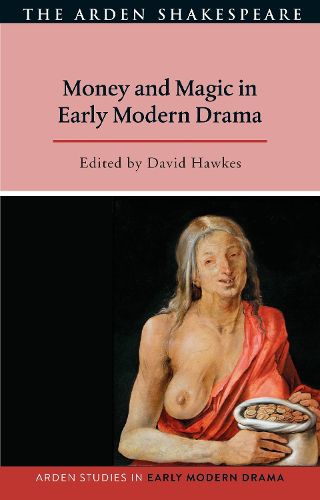Readings Newsletter
Become a Readings Member to make your shopping experience even easier.
Sign in or sign up for free!
You’re not far away from qualifying for FREE standard shipping within Australia
You’ve qualified for FREE standard shipping within Australia
The cart is loading…






Money, magic and the theatre were powerful forces in early modern England. Money was acquiring an independent, efficacious agency, as the growth of usury allowed financial signs to reproduce without human intervention. Magic was coming to seem Satanic, as the manipulation of magical signs to performative purposes was criminalized in the great 'witch craze.' And the commercial, public theatre was emerging - to great controversy - as the perfect medium to display, analyse and evaluate the newly autonomous power of representation in its financial, magical and aesthetic forms.
Money and Magic in Early Modern Drama is especially timely in the current era of financial deregulation and derivatives, which are just as mysterious and occult in their operations as the germinal finance of 16th-century London. Chapters examine the convergence of money and magic in a wide range of early modern drama, from the anonymous Mankind through Christopher Marlowe to Ben Jonson, concentrating on such plays as The Alchemist, The New Inn and The Staple of News. Several focus on Shakespeare, whose analysis of the relations between finance, witchcraft and theatricality is particularly acute in Timon of Athens, The Comedy of Errors, Antony and Cleopatra and The Winter's Tale.
$9.00 standard shipping within Australia
FREE standard shipping within Australia for orders over $100.00
Express & International shipping calculated at checkout
Money, magic and the theatre were powerful forces in early modern England. Money was acquiring an independent, efficacious agency, as the growth of usury allowed financial signs to reproduce without human intervention. Magic was coming to seem Satanic, as the manipulation of magical signs to performative purposes was criminalized in the great 'witch craze.' And the commercial, public theatre was emerging - to great controversy - as the perfect medium to display, analyse and evaluate the newly autonomous power of representation in its financial, magical and aesthetic forms.
Money and Magic in Early Modern Drama is especially timely in the current era of financial deregulation and derivatives, which are just as mysterious and occult in their operations as the germinal finance of 16th-century London. Chapters examine the convergence of money and magic in a wide range of early modern drama, from the anonymous Mankind through Christopher Marlowe to Ben Jonson, concentrating on such plays as The Alchemist, The New Inn and The Staple of News. Several focus on Shakespeare, whose analysis of the relations between finance, witchcraft and theatricality is particularly acute in Timon of Athens, The Comedy of Errors, Antony and Cleopatra and The Winter's Tale.